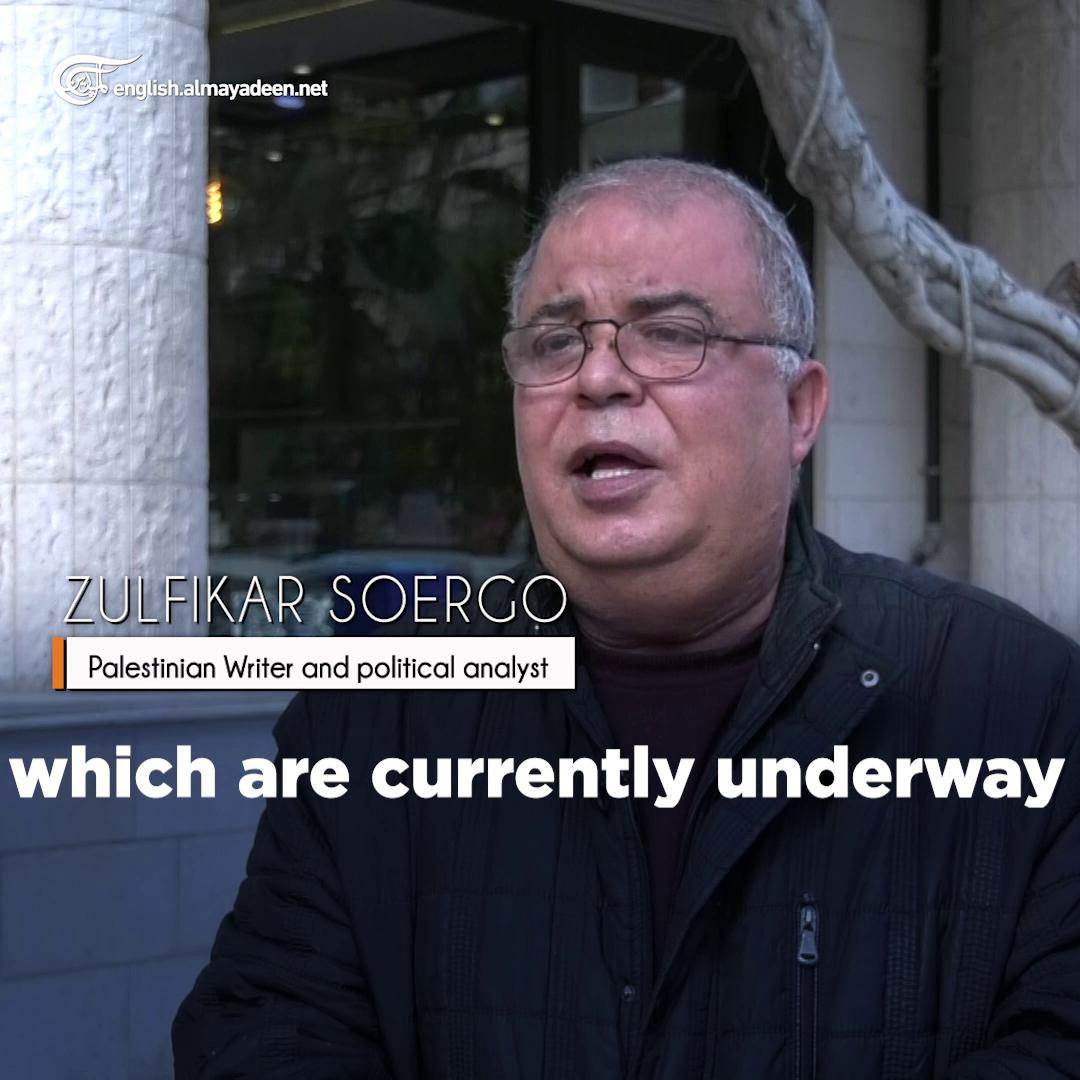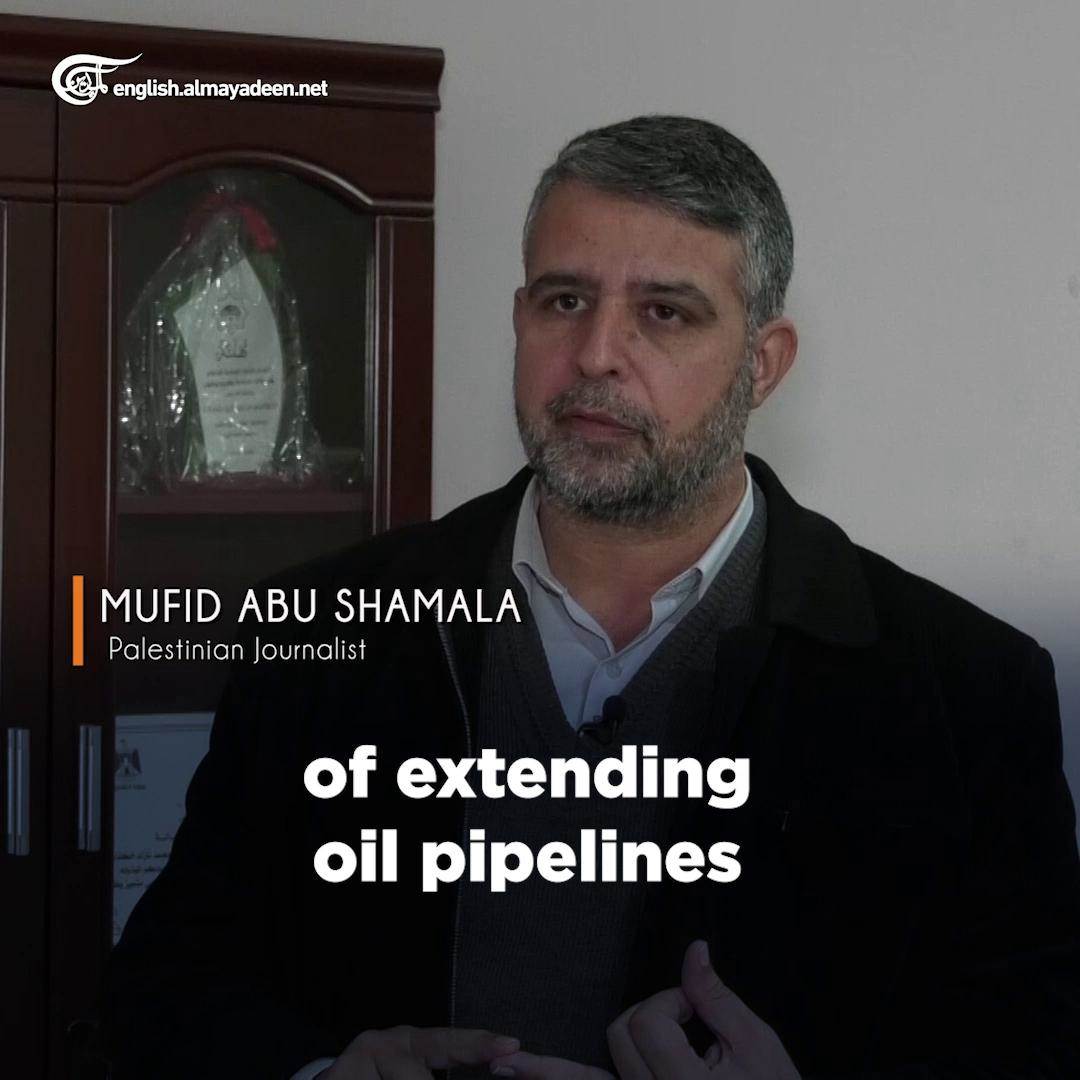Normalization: A stab in the back to the Palestinian cause
The recent wave of normalization in the Middle East has resulted in gruesome shifts in regional dynamics and balances most notably regarding Palestine and the Palestinian cause.
-

Most Arab and Muslim countries are apparently considering normalization, but at what cost?
The United Arab Emirates, Bahrain, Sudan, and Morocco are among the Arab countries that signed normalization deals with the Israeli occupation, echoing Egyptian President Anwar Sadat’s recognition of “Israel” in 1977.
Here’s the ugly truth: More Arab and Muslim countries are apparently considering doing the same with the US midwifing the move, not to mention that those who adopted the UAE’s prototype for normalization with “Israel” considered the issue of Palestine as non-existent.
Arab peace initiative?
Despite all claims of an Arab peace initiative, Palestine seems to be an afterthought in normalization deals with “Israel”. The so-called "Abraham Accords" were more about Arab transactions with the US than with “Israel”. In short, normalization with “Israel’" was the charge paid in exchange for the US' recognition of territorial claims (in the case of Morocco), removal from blacklists (in the case of Sudan), preservation of a totalitarian regime (in the case of Bahrain), or sale of weaponry (in the case of the UAE).
-
Normalization: A stab in the back of the Palestinian cause
Mohamed Abdala, a Sudanese writer, told Al Mayadeen English that the “Zionists are traders of crises - selling the perception, not necessarily the truth; they delude the Gulf countries with an obsession in armaments not to mention spyware, they delude African Sahara countries with irrigation and water networks, they delude Latin countries with modern industrial fortresses, and they delude the countries of South Asia with regular transportation networks and modern educational systems... etc.”
-
Normalization: A stab in the back of the Palestinian cause
On his account, Youssef Benasria, a Moroccan journalist, questioned how will Morocco’s normalization deal with “Israel” provide any justice to Palestinians having failed to provide justice to four Moroccan girls who were murdered alongside Palestinian children in an airstrike during the Israeli aggression on Gaza last May.
-

Hala, Rola, Yara, and Hala
In an interview for Al Mayadeen English, he added that his country did not benefit from the decision to normalize with the Israeli occupation in exchange for a useless US recognition of the 'Moroccanness' of Western Sahara, affirming that the situation didn’t change on the ground.
For “Israel”, the main motivation for reaching such agreements with the Arabs was not to make peace with Palestinians, but to normalize relations with the Arab world and gain a green pass to further murder Palestinians, annex more land, Judaize Al-Quds, continue with the apartheid practices, not to mention entering the region's markets, transit routes, stealing resources, and much more.
-
Normalization: A stab in the back of the Palestinian cause
Read More: “It Is Fun to Shoot Palestinians”: Six Former Israeli Soldiers Speak Up
Furthermore, “Israel” has been seeking to tailor a formal regional alliance in the face of the Axis of Resistance, right after the normalization of relations, which has been expressed by the Israeli Prime Minister Naftali Bennett who recently urged Bahrain to join the so-called alliance in his first visit of its kind to the country.
Here’s a look at Palestine: Pre- and post-normalization
Pre-normalization: Being a primary rallying point
The Palestinian cause has been a primary rallying point in many Arab states in the period between 2000 till 2020, which was translated on the ground in a de-escalation of Israeli aggression against Palestinians for not having as much support as it wants. In 2003, then-Israeli Prime Minister Ariel Sharon initiated a policy of disengagement from Gaza. The official declarations were put into action in February 2004, which led to the evacuation of 17 Gaza settlements and four more in the occupied West Bank, marking the first detour in the settler movement since 1968. In 2009, “Israel” placed a 10-month settlement freeze on the West Bank. During that period, the Israeli aggression didn’t cease, but the detour allowed for a very limited breathing room for the Palestinians.
Post-normalization: “Bypassing the Palestinian movement for independence”
After the normalization deals, the demolition of Palestinian homes by Israeli occupation forces and the Israeli military incursions into Palestinian territories increased dramatically. "Israel" made it clear that it does not feel obligated to stop annexing Palestinian land in the future, let alone withdrawing from occupied regions, as required by international treaties.
Israeli occupation forces boldly increased the transfer of Israeli settlements into posts in the occupied West Bank, which is considered a war crime. According to humanitarian organizations, Israeli officials advanced plans for more housing units in West Bank settlements in 2020 than in any other year since they began tracking these statistics in 2012.
Palestinian Political Writer Saleh Abu Izzah affirmed to Al Mayadeen English that the number of Israeli settlements and outposts in the occupied West Bank and Al-Quds has reached nearly 400 settlements and outposts. However, as part of implementing the normalization deals, construction projects in these settlements and outposts multiplied, as there are more than 65 construction projects, exceeding 11 thousand housing units.
"Since 1967, Israeli settlement building in the occupied West Bank and Al-Quds has not ceased, but it has shrunk and declined in two main periods: The First Intifada in 1987 and the Second Intifada in 2000, with an increased impact after the Oslo Agreement, but it clearly doubled after the normalization agreements with some Arab regimes,” Abu Izzah stressed.
“Israel’s” ugliest face
The United Nations reported that the Israeli aggression on Gaza last May left 260 martyrs, of whom 66 were children. The Gaza Health Ministry said Israeli forces injured 1,948 Palestinians, including 610 children. During the aggression, “Israel” violated humanitarian crimes and committed war crimes.
In the year 2020, Israeli authorities systematically suppressed and discriminated against Palestinians in ways that significantly outweighed the security justifications they frequently offered before normalization deals.
The Israeli occupation has imposed a generalized travel ban on Palestinians in the occupied Gaza Strip, as well as severe restrictions on commodities entry and exit. These limitations deprived the 2 million Palestinians residing there of their right to freedom of movement, limited their access to electricity and water, and wreaked havoc on the economy. It is worth noting that 80% of the people in Gaza depend on humanitarian aid.
Read More: No Christmas where Christ was born
Palestinian prisoners under Israeli collective punishment
Palestine's Ministry of Prisoners and Ex-Prisoners has recently stated that the Israeli occupation's Prison Service is deliberately escalating its violations against prisoners. They storm prisoners' rooms and sections at night and dawn and expose prisoners to rain and extremely cold weather. The Ministry pointed out that the administration imposes restrictions on the use of electric and heating devices, preventing prisoners from buying any heater, even at their own expense. Extreme cold weather in some prisons, such as in Al-Naqab Prison, leaves prisoners with frozen limbs without any heating systems or equipment. In addition, the administration adopts a policy of medical neglect without providing the necessary treatment and health care for Palestinian prisoners.
Around 4,600 Palestinian prisoners are being held in Israeli jails, including 200 children and 36 women. Among that number, 500 prisoners are in administrative detention, according to the Palestinian prisoners’ rights group Addameer.
Read More: Hunger Strikes: Palestinian Prisoners’ Last Resort
Palestinian prisoners are incarcerated in deplorable conditions and subjected to inhumane treatment. Human rights organizations have documented a variety of physical and psychological abuses, including arbitrary beatings, excessive use of solitary confinement, and denial of family visits for years.
A strong blow to “Israel”
Normalization happened first, and then “Israel” unleashed unprecedented brutalism against Palestinians. One fact is clear: none of these accords will ever guarantee that “Israel” will stop stealing Palestinian land or halt its apartheid practices against Palestinians. These normalization deals have solely given legitimacy to the occupier to the detriment of the occupied.
-
Normalization: A stab in the back of the Palestinian cause
The normalization deals have increased impunity in “Israel's” dealings with Palestinians on the ground. US writer Jim Kavanagh commented on this issue by saying, “The normalization deals are a recognition of the legitimacy of the Zionist project precisely at the time when that project is showing us its cruelest face in the dispossession of Palestinians in Al-Quds neighborhood."
“At the same time, on the ideological and popular level, the Zionist project has been almost entirely discredited. Major human rights organizations have now defined Israel clearly as an apartheid state. So, even when Palestinians seem so weak and the Israelis seem so strong on the geo-political stage, on the popular and deep historical understanding level, the Palestinian movement have never been stronger and the Israeli Zionist project have never been weaker.”
Despite "Israel's" ongoing hysterical aggression and as the ongoing normalization deals continue, the Palestinians have realized that the only way to overcome the current betrayal is through reinforcing internal unity and consolidating the regional Resistance alliance, thus, affirming that they will never abandon Palestine.

 8 Min Read
8 Min Read














